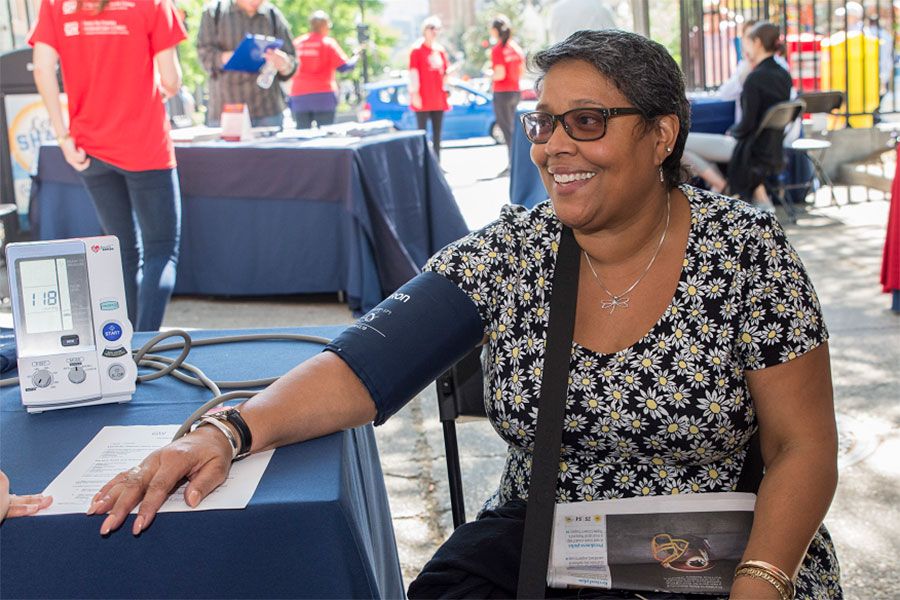
The George Washington University (GW) Hospital and the GW School of Medicine and Health Sciences sponsored “Stroke and Trauma Awareness Day” on May 20. The day-long, annual event featured free screenings and giveaways, and allowed the 183 participants to speak with medical professionals about their medical history and risk factors for stroke.
Risk factors include diabetes, high blood pressure, high cholesterol, irregular heart rates, inactivity, and age, while signs of a stroke include a drooping or numb face, arm weakness, and speech difficulty. The response to any of the stroke symptoms is to call 911.
Passersby, on their way to work or lunch, stopped in to receive blood pressure screenings, as well as information on stroke prevention, including smoking cessation, and trauma prevention, such as how to avoid falls and how to maintain bike safety.
GW Hospital, part of an elite group of providers focused on complex stroke care, recently earned accreditation as a Comprehensive Stroke Center from the Joint Commission and American Heart Association/American Stroke Association. The hospital, which is also a designated Level I Trauma Center, has a stroke team available 24 hours per day to provide care from the moment patients arrive, in what’s known as “door-to-needle time.” The hospital boasts a door-to-needle time of 60 minutes, putting it in the top tier of centers across the country and making it the best in the Washington, D.C. metro area.


